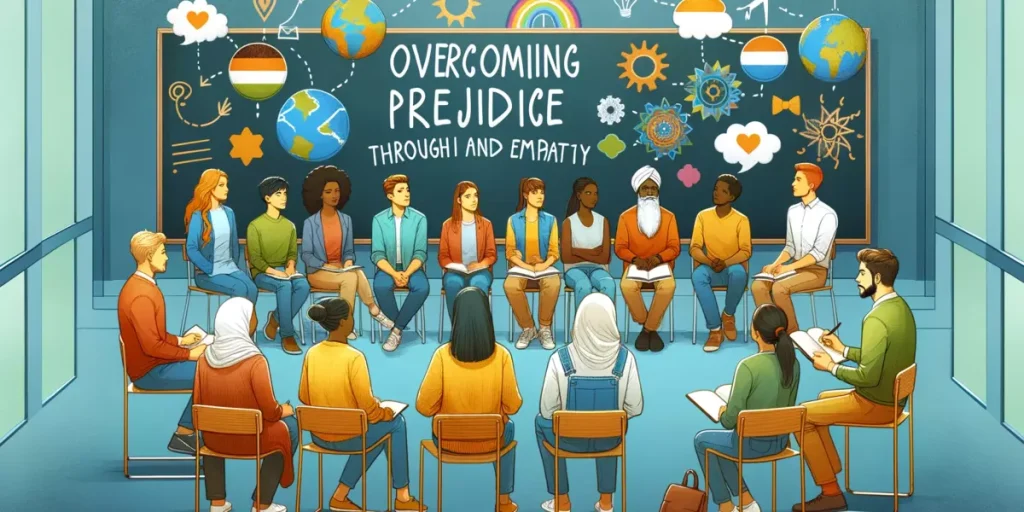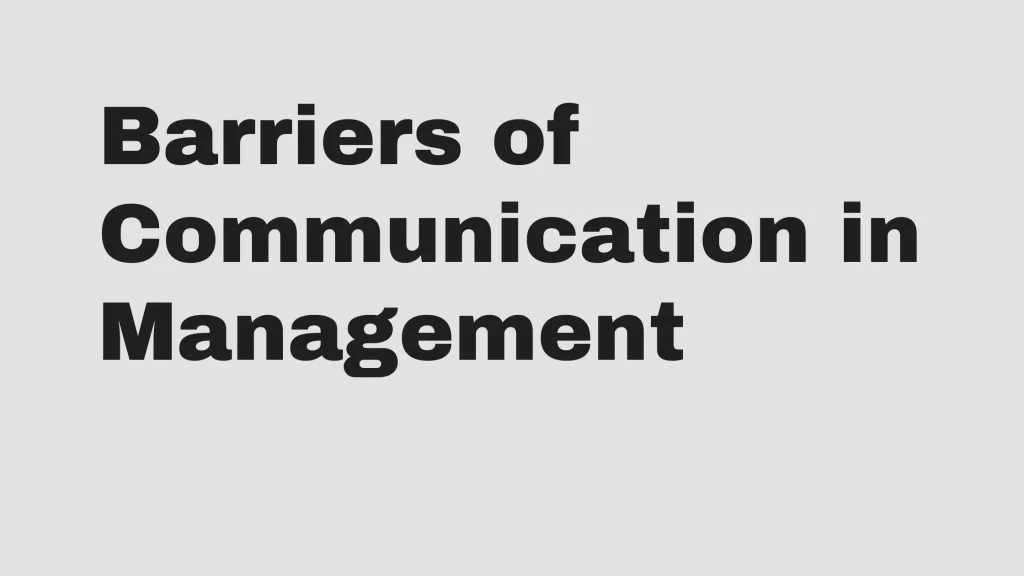Imagine walking into a room full of people from different parts of the world. Each person brings a unique story, coloured by the culture they grew up in. Ideally, this room should buzz with vibrant conversations, rich with diverse perspectives. However, there’s an invisible wall that often silences these voices and hinders our understanding – that wall is prejudice.
Prejudice, a preconceived opinion not based on reason or actual experience, acts like a barrier, preventing us from truly connecting and understanding people who seem different from us. In a world that’s more connected than ever, it’s crucial to recognize and overcome these barriers to embrace the richness of diverse cultures.
Contents
- 1 What Are the Consequences of Prejudice in Intercultural Communication?
- 2 Strategies for Overcoming Prejudice in Intercultural Settings
- 2.1 Education and Awareness
- 2.2 Encouraging Empathy and Perspective-Taking
- 2.3 Active Listening and Open Dialogue
- 2.4 Challenging Stereotypes and Biases
- 2.5 Creating Inclusive Environments
- 2.6 Cross-Cultural Training and Skills Development
- 2.7 Building Interpersonal Relationships
- 2.8 Encouraging Language Learning
- 2.9 Role Modelling and Leadership
- 2.10 Feedback and Continuous Improvement
What Are the Consequences of Prejudice in Intercultural Communication?
The consequences of prejudice in intercultural communication are significant and wide-ranging, impacting both individuals and society as a whole. Here are some key impacts:
Miscommunication and Misunderstandings
Prejudice can lead to misinterpretations of messages or intentions in communication. When individuals approach intercultural exchanges with preconceived notions, they may misunderstand or distort the true meaning of what is being communicated, leading to confusion and conflict.
Reduced Trust and Cooperation
Prejudice erodes the foundation of trust necessary for effective communication. People are less likely to engage openly and honestly with others whom they prejudge negatively, which can severely limit cooperation in diverse settings like workplaces, schools, and community groups.
Social and Emotional Impact
Individuals who are the targets of prejudice can experience a range of negative emotions, including anxiety, sadness, and anger. This emotional toll can lead to decreased self-esteem and a sense of alienation, impacting their ability to communicate effectively in intercultural settings.

Perpetuation of Stereotypes
Prejudice in communication often perpetuates stereotypes. When people act based on prejudiced beliefs, they reinforce and validate those stereotypes, not only in themselves but also in others, creating a cycle of misinformation and bias.
Barrier to Cultural Exchange and Learning
Prejudice can act as a barrier to the rich exchange of ideas and cultural knowledge that is a key benefit of intercultural communication. This limits opportunities for learning and understanding, keeping individuals and groups isolated in their cultural silos.
Impact on Decision-Making and Opportunities
In professional and academic settings, prejudice can lead to unfair decision-making, where individuals are judged not on their merits but on preconceived notions about their cultural or ethnic background. This can result in unequal opportunities, discrimination, and a lack of diversity in leadership roles.
Societal Division and Conflict
On a larger scale, prejudice in intercultural communication can contribute to societal division and conflict. When groups of people fail to communicate effectively and respectfully due to prejudice, it can exacerbate tensions and lead to social unrest.
Overcoming prejudice in intercultural settings is crucial for fostering effective communication and mutual understanding. Here are some strategies that can be employed:
Education and Awareness
Increasing awareness about different cultures, their values, and traditions is fundamental. Educational programs or workshops that focus on intercultural communication can help individuals understand the root causes of prejudice and the importance of diversity.
Encouraging Empathy and Perspective-Taking
Encouraging individuals to put themselves in others’ shoes can help reduce prejudice. Understanding different perspectives and experiences can foster empathy and reduce the tendency to pre-judge based on stereotypes.

Active Listening and Open Dialogue
Promoting active listening skills in intercultural communication is essential. This involves truly hearing what the other person is saying and seeking clarification when necessary, rather than making assumptions based on one’s own cultural background.
Challenging Stereotypes and Biases
Individuals should be encouraged to identify and challenge their own biases and stereotypes. This can be done through self-reflection, education, and open discussions about biases and their impact.
Creating Inclusive Environments
In workplaces, schools, and communities, creating an environment that values diversity and inclusivity is key. This includes implementing policies that discourage discriminatory behaviour and promote equal opportunities for all.
Cross-Cultural Training and Skills Development
Offering training in cross-cultural communication skills can be highly effective. This includes teaching about non-verbal communication, cultural norms, and language differences.
Building Interpersonal Relationships
Encouraging personal relationships and interactions across different cultures can help break down barriers of prejudice. When individuals form friendships or work closely with people from different backgrounds, it can lead to a greater understanding and appreciation of those cultures.
Encouraging Language Learning
Learning another language can be a powerful tool in overcoming prejudice. It not only opens up new channels of communication but also provides deeper insights into the culture and thought processes of others.
Role Modelling and Leadership
Leaders and influencers play a crucial role in setting the tone for inclusivity and respect in intercultural settings. They should actively demonstrate and promote respectful and unbiased communication.
Feedback and Continuous Improvement
Encourage feedback mechanisms where individuals can express concerns and suggest improvements related to intercultural interactions. Use this feedback for continuous improvement in policies and practices.
Implementing these strategies requires ongoing commitment and effort, but the benefits of reduced prejudice and enhanced intercultural communication are vast and deeply impactful for both individuals and societies.
Boko Ducky has over 10 years of experience in helping individuals and organizations improve their communication skills.



